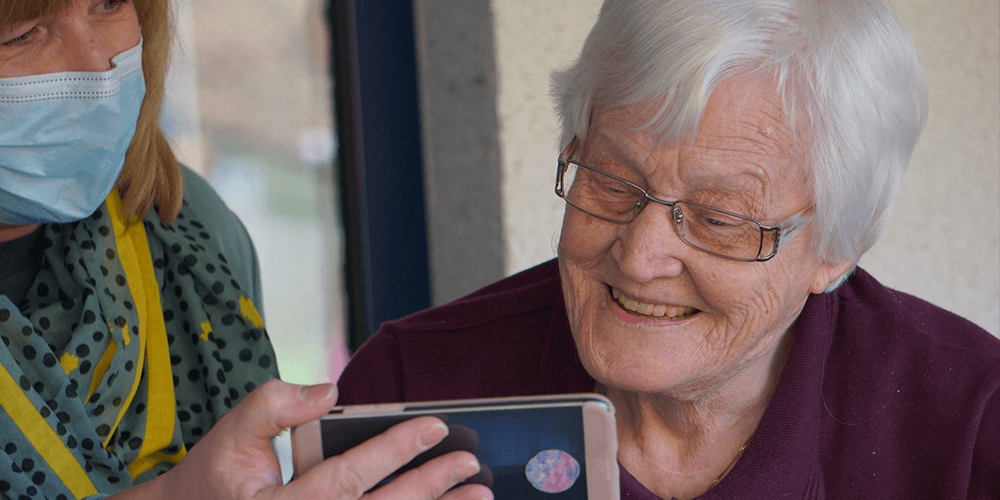- Solutions
- Products
- Community
- Resources
- Company
Create incredible candidate experiences that communicate your brand, mission, and values with recruitment marketing solutions.
Learn moreCommunicate effectively and efficiently with the candidates that can drive your business forward.
Learn moreSelect the right candidates to drive your business forward and simplify how you build winning, diverse teams.
Learn moreHelp your best internal talent connect to better opportunities and see new potential across your entire organization.
Learn moreCommunicate collectively with large groups of candidates and effectively tackle surges in hiring capacity.
Learn moreAccess tools that help your team create a more inclusive culture and propel your DEI program forward.
Learn moreRebound and respond to the new normal of retail with hiring systems that are agile enough to help you forge ahead.
Learn moreAccelerate the hiring of key talent to deliver point of care and support services that meet and exceed your promise of patient satisfaction.
Learn moreAttract and engage candidates with technical competencies, accelerate hiring for much-needed skills, and advance expertise within your valued workforce.
Learn moreSimplify how you recruit finance, insurance, and banking candidates with a unified platform built to match top talent with hard-to-fill roles.
Learn moreYour business strategy depends on your people strategy. Keep both in lockstep with the iCIMS Talent Cloud.
Learn moreBuild an engaging, high-converting talent pipeline that moves your business forward.
Learn moreDeliver the innovation your talent team needs, along with the global scale and security you demand.
Learn moreDeliver tailored technology experiences that delight users and power your talent transformation with the iCIMS Talent Cloud.
Learn moreThe #1 ATS in market share, our cloud-based recruiting software is built for both commercial and large, global employers.
Learn more Talk to salesAttract the best talent for your business with powerful, on-brand career websites that excite candidates and drive engagement.
Learn more Talk to salesCombine behavior-based marketing automation with AI insights to build talent pipelines, engage candidates with multi-channel marketing campaigns, and automatically surface the right talent for the job.
Learn more Talk to salesEmpower candidates with automated self-service, qualification screening, and interview scheduling through an AI-enabled digital assistant.
Learn more Talk to salesSimplify employee onboarding with automated processes that maximize engagement and accelerate productivity.
Learn more Talk to salesVerify skills with game-changing levels of automation and simplicity to improve the quality of hire at scale.
Learn more Talk to salesModernize, streamline, and accelerate your communication with candidates and employees.
Learn more Talk to salesTransform the talent experience by showcasing your authentic employer brand through employee-generated video testimonials.
Learn more Talk to salesSimplify recruiting, dynamically engage talent, and reduce hiring bias with job matching and recruiting chatbot technology.
Learn moreStreamline and centralize your HR tech stack with configurable, flexible, secure and reliable integrations.
Learn moreHow a beloved restaurant hires 40,000+ annually with a great candidate experience.
Learn moreThousands strong, our global community of talent professionals includes creatives, innovators, visionaries, and experts.
Learn moreTogether we’re creating the world’s largest ecosystem of integrated recruiting technologies.
Learn morePartner with our global professional services team to develop a winning strategy, build your team and manage change.
Learn moreExplore our network of more than 300 certified, trusted third-party service and advisory partners.
Learn moreUncover unique market insights, explore best practices and gain access to talent experts across out library of content.
Get resourcesExpert guidance about recruitment solutions, changes in the industry, and the future of talent.
Learn moreStay up to date with the latest terminology and verbiage in the HR software ecosystem.
Learn moreEmployers everywhere improve hiring efficiently and save money using iCIMS. Estimate the potential business value you can achieve.
Learn moreDive into the Class of 2023 Report highlighting this cohort’s expectations and where employers are willing — and able — to meet them.
Watch nowPartner with iCIMS to build the right strategies, processes, and experience to build a winning workforce.
Learn moreExpert guidance about recruitment solutions, changes in the industry, and the future of talent.
Learn moreDeliver the innovation your talent team needs, along with the global scale and security you demand.
Learn moreView press releases, media coverage, and the latest hiring data. See what analysts are saying about iCIMS.
Learn moreiCIMS is the Talent Cloud company that empowers organizations to attract, engage, hire, and advance the talent that builds a winning workforce.
Learn moreGet to know the award-winning leadership team shaping the future of the recruiting software industry.
Learn moreWe believe the future of work isn't something that "happens" to you. It's something you create. We actively create the future of work with our customers every day.
Learn moreiCIMS is committed to being a responsible and ethical corporate citizen, which is why Environmental, Social and Governance (ESG) initiatives are strategic imperatives.
Learn moreStreamline your tech stack and take advantage of a better user experience and stronger data governance with ADP and the iCIMS Talent Cloud.
Learn moreThe combined power of iCIMS and Infor helps organizations strategically align their business and talent objectives.
Learn moreOur award-winning partnership with Microsoft is grounded in a shared desire to transform the workplace and the hiring team experience.
Learn moreOur partnership with Ultimate Kronos Group (UKG) supports the entire talent lifecycle by bringing frictionless recruiting solutions to UKG Pro Onboarding.
Learn moreLet’s get in touch. Reach out to learn more about iCIMS products and services.
Learn more

Pivot, get creative, pivot again, and have some faith.
That is how so many healthcare recruiters described the start of the pandemic, as they had to throw out 2020 hiring plans and quickly fill the frontlines with essential workers.
“In the first few weeks our recruitment team had to quickly adjust our strategies to address the changing needs brought on by this pandemic,” said Debbie Eberenz, AVP of recruitment at Trilogy Health Services.
While so many businesses made difficult decisions on cutting their workforce to survive the economic downturn, healthcare was making the necessary pivots to ramp up their efforts. The recruiting teams – who were working remote – had to get creative in hiring essential healthcare talent faster than ever and for likely temporary roles.
A boomerang campaign to target alumni employees was launched by Devereux Advanced Behavioral Health, with incentives such as shortening the benefit period and getting back previously earned paid time off. It’s resulted in a steady flow of quality applicants for the behavioral health organization’s centers.
Trilogy Health quickly set up virtual career fairs – but with a twist. Rather than slotting in back-to-back interviews, one recruiter decided to spend extra time to give a presentation to the job seekers about the organization and the roles available. From there, she scheduled one-to-one interviews through text message with those who were interested.
When the recruiters at CommonSpirit Health shifted their recruitment efforts to focus on mission-critical roles, they picked up the phones and began to personally reach out to every single candidate that applied. It was important to them that they stayed consistent in their message and took time to understand what the person on the other end was going through.
On a drive through any town center across the globe you’ll see homemade signs on lawns of healthcare workers that say, “a hero lives here.” For these recruiting teams, they’ve always felt part of that rally cry and have been more connected than ever to their colleagues on the frontlines.
St. Luke’s Health System has focused on moving people around the organization where they’re needed the most so no one is sidelined. Devereux employees that are able to work remote are making masks for their colleagues who are on-site. The team at Trilogy Health Services pulled together to craft new ways to continue their well-loved employee recognition program when monthly celebrations had to be cancelled.
“We are just really driven to help ensure that our campuses have the staff they need to take care of our residents,” said Eberenz. “That’s part of what’s so rewarding about being a recruiter in this industry. Just ensuring that we are getting the right people in the door to be part of the team.”
Eberenz is also zeroing in on employee onboarding. Like many organizations who are hiring for the front lines, recruiters are engaging with unlikely applicants due to nonessential workplaces being shut down. As these new, temporary workers come on board, Trilogy Health Services is focused on investing in their future.
“They came to us for an opportunity,” said Eberenz. “So part of what we’re working to do is [showcasing] here’s what your career could look like with us and here’s people that actually did it.”
Brookdale Senior Living is focused on keeping their team set up for success, starting with new hiring best practices.
“Interview guides are different, talking points are different, so recruiters and hiring managers need to understand how to interpret body language,” said Deborah Jandt, senior director of talent acquisition at Brookdale Senior Living.
Jandt explained that the shift between a structured interview environment to virtual conversations means candidates shouldn’t be critiqued for their surroundings, such as where they’re taking the interview or if their dog starts to bark. That documentation of best practices and how to use virtual tools was critical in order to properly support over 50,000 associates.
But setting their team up for success with their new way of work also meant taking into account how that impacts their team’s well-being. They brought in their physical therapists on team meetings to talk about how to take care of their physical bodies when remote, from the right chair to sit on to optimal lighting.


With major hiring pivots and virtual work under their belt, each healthcare talent leader was poised, passionate, and grateful for the work their organizations were doing.
“Kindness goes a long way when it comes to problem solving and letting people process change,” said Renee Stacy, director of talent acquisition at St. Luke’s.
It’s easy to get caught up in the public health panic and the economic downturn. Yet, these leaders are focused on the good.
“Recruiting teams have a lot of camaraderie,” said Wanda Cole-Frieman, SVP of talent acquisition at CommonSpirit. “If you’re centered around people, it’s really easy to stay motivated.”
And that internal camaraderie can shine in external candidate messaging.
“What we do matters and our message has changed to show that,” said Erin Herda, senior director of talent acquisition at Brookdale Senior Living. “We want you to be part of our family.”
When asked if they had any advice for others who are hiring for essential roles, here’s what our talent leaders shared:
For more tips on filling critical roles, check out our rapid hiring resources here.





